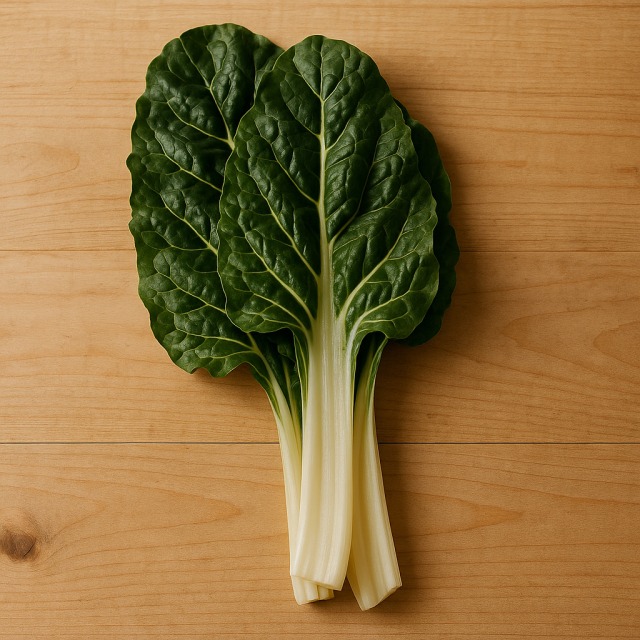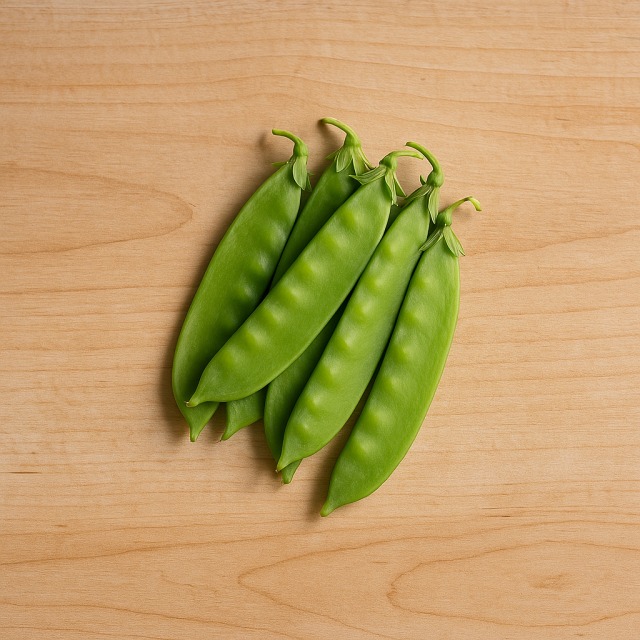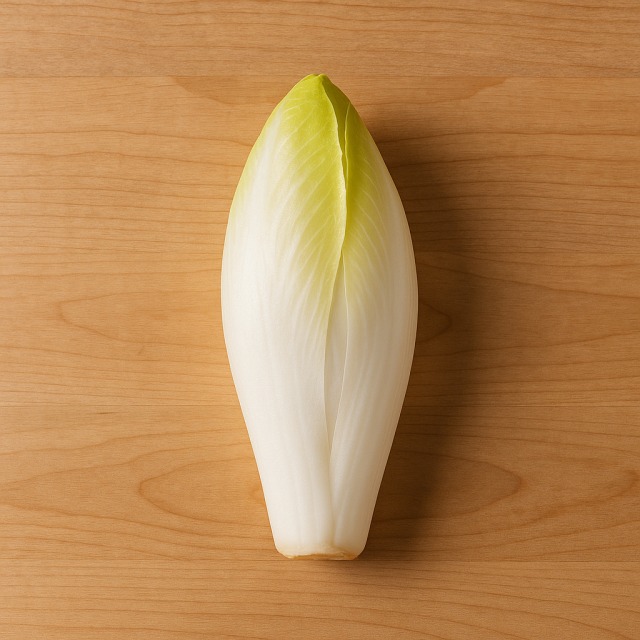Calorie Chart / Vegetables / Chard
How Many Calories Are in Chard?
Calculation of the nutritional value & Recommended Dietary Intake of chard
For g and a calorie requirement of kcal
| Calories 48 kcal | Proteins 4 g | Lipids 0.4 g | Carbohydrates 7 g |
| 2% | 5% | 1% | 3% |
Health benefits of chard

Chard - 100g
Calories 24 kcal
Proteins 2 g
Lipids 0.2 g
Carbohydrates 3.5 g
With only 24 calories per 100 g, chard is classified as a low-calorie food. Those few calories are balanced by an impressive supply of vitamin K (important for blood clotting and bone health) and vitamin A (essential for vision). The leaves also deliver vitamin C for immune support and antioxidants, all with virtually no impact on daily calories.
Chard provides useful amounts of magnesium, potassium, and iron, minerals that contribute to muscle function, electrolyte balance, and oxygen transport. Because you get these nutrients for so few calories, chard is often recommended in weight-management diets where every calorie counts.
The colored stems owe their brightness to betalain pigments, studied for supposed anti-inflammatory and detoxifying effects—yet another potential benefit without adding many calories. Historically, chard was cultivated around the Mediterranean as early as 400 BC; its name comes from the Latin "carduus," referring to the thistle-like ribs. Today it remains a smart choice when you need nutrients, fiber, and bulk for minimal calories.
In short, chard is low in calories, rich in vitamins and minerals, and versatile in the kitchen—an excellent ally for athletes monitoring calories or anyone aiming to reduce daily calories while staying well-nourished.
Tips for incorporating chard into a balanced diet
Because chard is so light in calories, you can pair it with more energy-dense items to build a balanced plate. Try a warm salad of wilted chard with toasted almond slivers and grilled salmon: the healthy fats and proteins raise satiety while overall calories stay moderate.
For a comforting but reasonable-calorie dinner, cook the chopped stems with onion, layer the leaves on top, cover with a whisked egg and a sprinkle of fresh goat cheese, then bake into a crustless quiche. You'll achieve flavor, texture, and proteins without the extra calories of pastry.
If you crave something more substantial, fold blanched chard into whole-grain quinoa or brown rice, add lemon zest and herbs, and serve alongside a lean chicken breast. This combo controls calories, boosts fiber, and keeps blood sugar stable.
Finally, blend raw chard leaves into a green smoothie with apple and banana; the fruit naturally sweetens the drink while the vegetable keeps calories lower than in fruit-only blends. Thanks to its mild taste, chard lets you increase volume without piling on calories, making it perfect for snacks when you are counting calories.
Frequently Asked Questions
- How many calories are in chard?
- Chard provides about 24 calories per 100 g.
- Is chard good for weight-loss diets?
- Yes. Its 24 calories per 100 g, high water content, and fiber make chard very filling for very few calories, helping you stay within a calorie deficit.
- Does cooking chard change its calories?
- Boiling or steaming adds virtually no calories; only added fat (for example, a knob of butter) will increase the calories of the final dish.
- How do the calories in chard compare with spinach?
- Both are low-calorie greens; spinach averages 23 calories per 100 g, so the difference is negligible. You can interchange them without worrying about calories.
- Are the stalks lower in calories than the leaves?
- Stalks and leaves have similar calories; the stalks contain slightly more water, so any difference in calories is minimal.
- Can chard fit into a keto diet even with its 24 calories?
- Yes. Those 24 calories include only about 3.5 g of carbohydrates, so chard is keto-friendly and adds bulk without raising daily calories significantly.
Similar foods
Information provided by Calorie Menu may contain inaccuracies or errors. It cannot, under any circumstances, substitute medical advice or medication.










